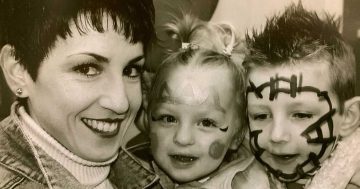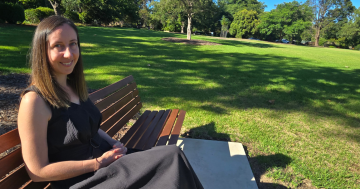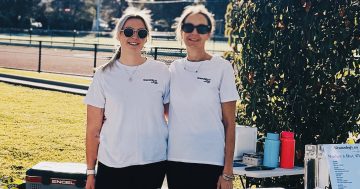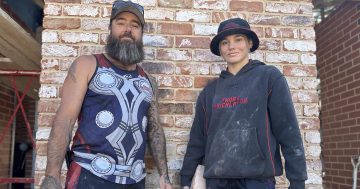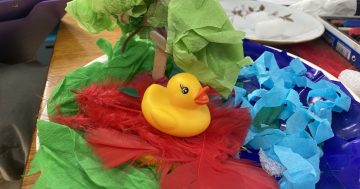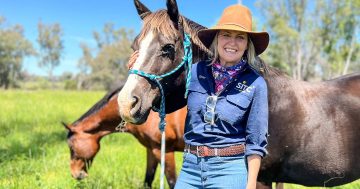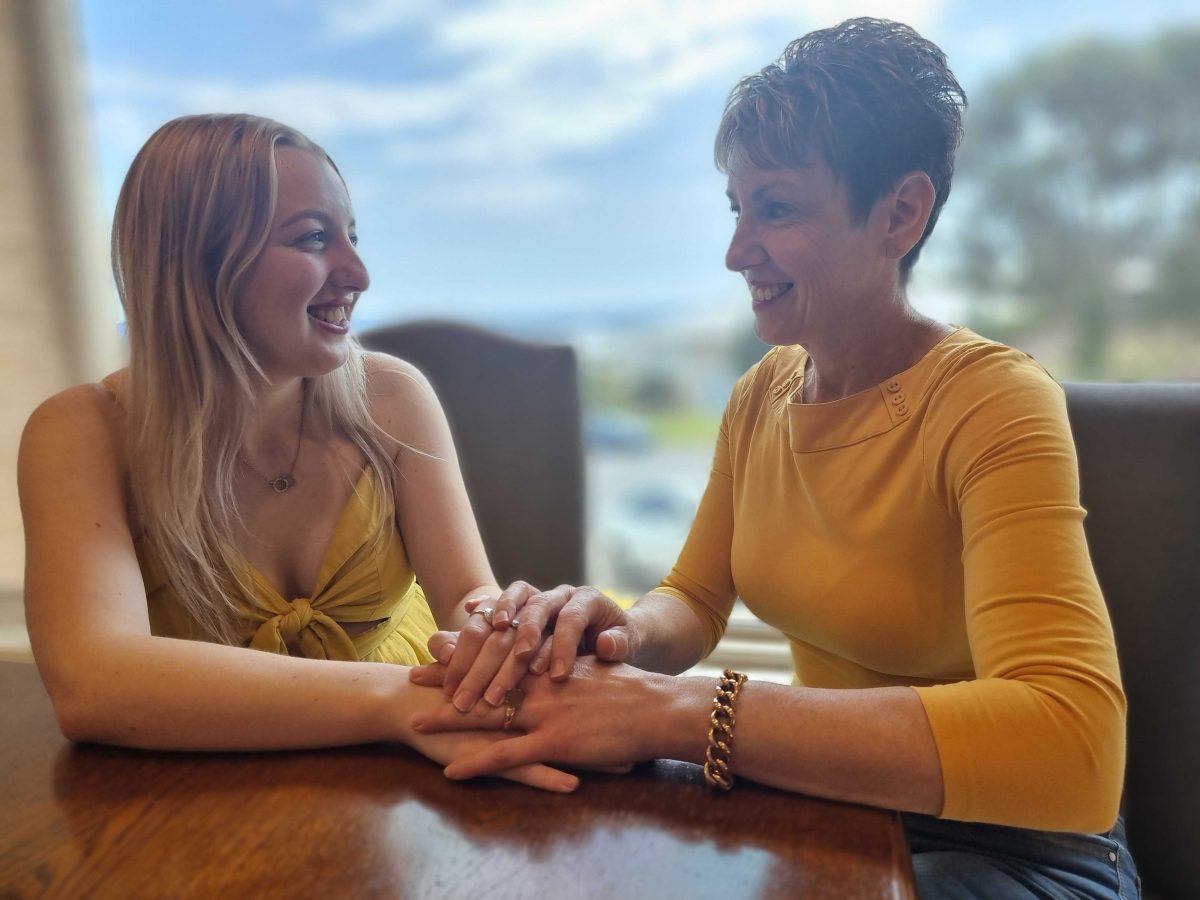
Lucia Flint and her mum Cindy have shared their painful journey of living with endometriosis. Photo: Shri Gayathirie Rajen.
Wagga mother and daughter Cindy and Lucia Flint have shared their painful journey with endometriosis in the hope of raising public awareness of the invisible illness.
Endometriosis is a condition whereby tissue similar to the endometrium (that lines the inside of the uterus) also grows outside the uterus. It affects one in nine women aged between 12 and 50 in Australia. The condition takes, on average, six to seven years to be diagnosed.
Symptoms of endometriosis can vary with each woman, including abdominal or pelvic pain, heavy or irregular bleeding, anxiety, depression, nausea, fatigue, infertility and bleeding from the bladder or bowel.
Cindy, 48, says the illness is common but not “compassionately” spoken about because of how personal it is.
“The hardest part is to gain a formal diagnosis … it’s something internal and hard to relate to for somebody else who’s not having the same experience,” Cindy said.
“Unfortunately, I wasn’t one of those blessed enough to have one surgery and then the endometriosis disappeared.
“So after a six to 12-month period, I would have a relapse into the pain, and the pain can be quite depleting, but I try and remain positive because it’s something I have to manage daily.”
Cindy started experiencing her symptoms at 15 and was diagnosed in her mid-20s. In her efforts to fight the pain, she had a hysterectomy at 30.
The mother-of-two said despite being “blessed with two children”, she felt she was missing something.
“There was an indifference … you don’t have those female organs,” she said, fighting back tears.
“It did help with an element of pain but only to a certain degree … it was helpful there was no longer a menstrual cycle, but there’s still other things going on internally, unfortunately.
“It created other issues because of the space. I had an abdominal collapse and had to have some surgery after that.”
Cindy has found ways to manage her symptoms but cannot take prescription medications due to the side effects.
“As women, we still have a responsibility to be caregivers, but it’s tough to care for ourselves because we may not be able to take pain as it may affect our ability to do our other tasks.”
Lucia, 21, also started enduring painful symptoms at 15 and 16, and realised they may be related to endometriosis.

Lucia and Cindy support each other in their battle against endometriosis, which affects many women. Photo: Shri Gayathirie Rajen.
“I woke up in the middle of the night and went to get a heat pack, and I passed out from the pain … my dad found me in the kitchen because he heard a thud,” Lucia said.
“I was taken to hospital, and they thought I had appendicitis.
“I was at uni when I had a cyst burst … I wasn’t on my period and going about my day normally, and then I was crying on the floor.”
After an external and internal ultrasound, the hospital told Lucia it couldn’t find anything, and nothing was wrong with her.
“It’s tough when you’re experiencing such pain, but you don’t feel like you’re being heard and must advocate for yourself constantly,” she said.
Like her mother, Lucia has tried various pain management measures to ease the pain, but sometimes it is of no avail.
“I had a Zoom meeting for a placement in Geelong, and I had to apologise to the people, ‘I’m sorry, I need to go’, and then I slammed the laptop and ran to the bathroom.
“I was violently throwing up … I was on the bathroom floor for hours, and nothing helped, even with all the methods I used.
“I have a lot of fear of what’s coming … fear around when you get your period. How bad is this going to be? Am I going to be able to go to work? Am I going to be able to get up? Do I have to stay in there? Do I need to go to the hospital again? Will they believe me at the hospital?”
The formal diagnosis process for the illness is a laparoscopy, and Lucia is still yet to be formally diagnosed as her previous gynecologist advised against the procedure.
“She didn’t want to operate on me and said if I continued to get a laparoscopy, it would create scar tissue, and I’m too young, so I should get an IUD (intrauterine contraceptive device) instead.”
One in six women with endometriosis in Australia will have to leave their job due to the condition.
Lucia said she would love to see menstrual leave provided in the Australian workforce.
She hopes that more women open up to have an honest conversation to create more awareness about the illness.
“Unfortunately, there’s some stigma around men understanding menstrual conditions, but the more we have open, honest conversations, the better it becomes,” Lucia said.
“And I’ve been very blessed with the men in my life, being my dad and my brother and my grandparents … they’re understanding and they see what we go through.”
The Federal Government is set to open 20 specialist endometriosis clinics nationwide this year. The closest clinic to Wagga will be in Canberra.
March is Endometriosis Awareness Month. You can read more about endometriosis on the healthdirect website.







